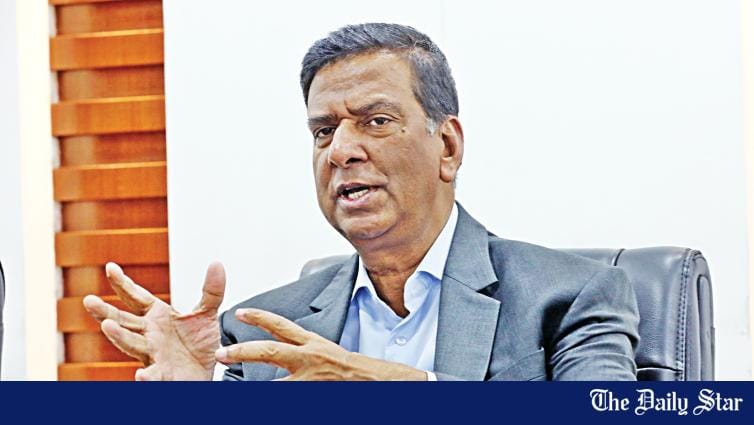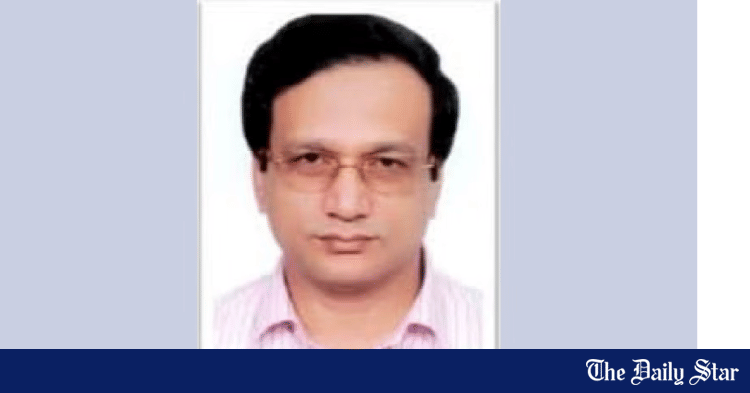Saif
Senior Member
- Joined
- Jan 24, 2024
- Messages
- 16,073
- Likes
- 8,056
- Nation

- Axis Group


ACC summons ex-Islami Bank chair, 11 others over alleged laundering of $1b by S Alam
The Anti-Corruption Commission on Monday summoned Islami Bank Bangladesh’s 12 former and servicing officials, including its former chairman Ahsanul Alam, to appear at the commission for interrogation in connection with...
 www.newagebd.net
www.newagebd.net
ACC summons ex-Islami Bank chair, 11 others over alleged laundering of $1b by S Alam
Staff Correspondent 17 February, 2025, 21:52

Collected photo
Ex-minister Mujibul, wife sued over illegal wealth
The Anti-Corruption Commission on Monday summoned Islami Bank Bangladesh’s 12 former and servicing officials, including its former chairman Ahsanul Alam, to appear at the commission for interrogation in connection with the alleged laundering of $1 billion abroad by S Alam Group chairman Mohammad Saiful Alam and his family members.
The anti-corruption agency on the day also filed two separate cases against former railway minister Mujibul Haque and his wife Hanufa Akter Rikita on charges of amassing illegal wealth worth Tk 10.67 crore.
The ACC sent a letter signed by its deputy director Abu Sayeed to the managing director of Islami Bank, asking the bank’s 12 former and serving officials to appear at the commission on February 26 and 27, said ACC officials.
According to the letter, the ACC is conducting inquiry over an allegation of laundering $1 billion to Singapore, British Virginia island, Cyprus and other countries by S Alam Group chairman Mohammad Saiful Alam and his family members.
The ACC asked Islami Bank’s former chairman Ahsanul Alam, former vice-president Dilruba Hayat, senior vice-president Nazmul Huda Siraji, FAVP Md Abu Hanif, senior principal officer Shariful Islam and executive committee member Abu Sayeed Mohammad Kashem to appear at the ACC headquarters in the capital Dhaka on February 26.
The commission asked executive committee member Jamal Mostafa Chowdhury, board director Md Sarwar Hossain, executive vice-president Shamsuddoha, EVP Mir Rahmatullah, SEVP Abu Sayed Md Idris and deputy managing director Kazi Md Rezaul Karim to appear at the commission on February 27 for interrogation over the allegation.
ACC spokesperson and its director general Md Aktar Hossain said that the ACC filed the two cases against Mujibul and his wife Hanufa with its integrated district office in Dhaka-1.
According to the cases, former minister Mujibul allegedly misused his power to acquire assets worth Tk 7.39 crore beyond known sources of income.
Another case was filed against Mujibul’s wife Hanufa on charges of amassing illegal wealth worth Tk 3.28 crore.
After the fall of the Awami League government amid a student-led mass uprising on August 5, 2024, the ACC had started an inquiry into corruption allegations against Mujibul.
Staff Correspondent 17 February, 2025, 21:52
Collected photo
Ex-minister Mujibul, wife sued over illegal wealth
The Anti-Corruption Commission on Monday summoned Islami Bank Bangladesh’s 12 former and servicing officials, including its former chairman Ahsanul Alam, to appear at the commission for interrogation in connection with the alleged laundering of $1 billion abroad by S Alam Group chairman Mohammad Saiful Alam and his family members.
The anti-corruption agency on the day also filed two separate cases against former railway minister Mujibul Haque and his wife Hanufa Akter Rikita on charges of amassing illegal wealth worth Tk 10.67 crore.
The ACC sent a letter signed by its deputy director Abu Sayeed to the managing director of Islami Bank, asking the bank’s 12 former and serving officials to appear at the commission on February 26 and 27, said ACC officials.
According to the letter, the ACC is conducting inquiry over an allegation of laundering $1 billion to Singapore, British Virginia island, Cyprus and other countries by S Alam Group chairman Mohammad Saiful Alam and his family members.
The ACC asked Islami Bank’s former chairman Ahsanul Alam, former vice-president Dilruba Hayat, senior vice-president Nazmul Huda Siraji, FAVP Md Abu Hanif, senior principal officer Shariful Islam and executive committee member Abu Sayeed Mohammad Kashem to appear at the ACC headquarters in the capital Dhaka on February 26.
The commission asked executive committee member Jamal Mostafa Chowdhury, board director Md Sarwar Hossain, executive vice-president Shamsuddoha, EVP Mir Rahmatullah, SEVP Abu Sayed Md Idris and deputy managing director Kazi Md Rezaul Karim to appear at the commission on February 27 for interrogation over the allegation.
ACC spokesperson and its director general Md Aktar Hossain said that the ACC filed the two cases against Mujibul and his wife Hanufa with its integrated district office in Dhaka-1.
According to the cases, former minister Mujibul allegedly misused his power to acquire assets worth Tk 7.39 crore beyond known sources of income.
Another case was filed against Mujibul’s wife Hanufa on charges of amassing illegal wealth worth Tk 3.28 crore.
After the fall of the Awami League government amid a student-led mass uprising on August 5, 2024, the ACC had started an inquiry into corruption allegations against Mujibul.










































